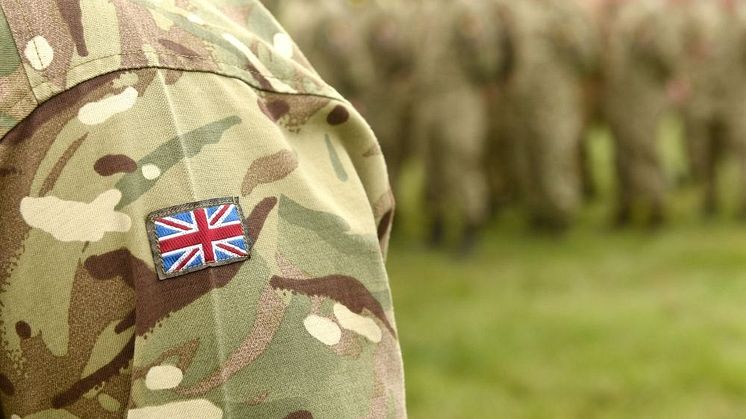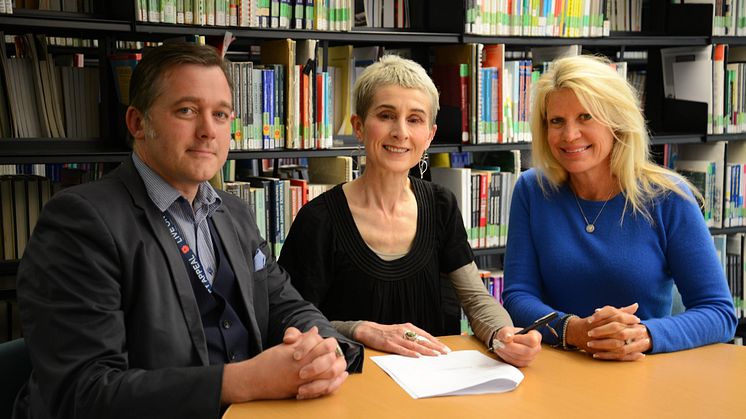Press release -
EXPERT COMMENT: Sexual harassment is a real problem in the armed forces – and offences are not being ‘properly recorded’
Christina Dodds, PhD researcher and Graduate Tutor at Northumbria, discusses the recent MoD report on inappropriate behaviours.
There’s been a 35% rise in Ministry of Defence sexual offence investigations over the past two years – with 60% of those in the British Army. These figures, published earlier this year by the UK government, show that 153 investigations were conducted in 2018. Of these, 18 were for historical offences – and the most common form of investigation was for sexual assault, followed by rape.
A recent review also found a “significant number” of military personnel have experienced “bullying, discrimination and harassment” – with women and ethnic minorities more likely to be involved in disputes.
The Wigston review by Air Chief Marshal Wigston, which was published in July 2019, investigated inappropriate behaviour in the UK’s armed forces. The review also highlighted a woeful lack of data on sexual offences within the military. And that the data that is available indicates there is a significant problem. According to the human rights group Liberty, the Ministry of Defence is not recording allegations “properly or accurately”.
Indeed, after the #MeToo campaign, the 2018 Army Sexual Harassment report found that 73% of women questioned reported inappropriate and unwelcome comments and that 20% had experienced inappropriate sexual touching. It also found that 8% of women had been involved in a serious sexual assault and 3% reported being raped. Only 10% of these women made a formal complaint – and of those complaining 70% said they were dissatisfied with the outcome.
The Wigston review makes it clear that the few who persist in orchestrating inappropriate behaviour have no place in the armed forces. And to meet this challenge the report makes 36 recommendations. These are focused towards prevention, improved training and better support for those affected by incidents of inappropriate behaviour.
As someone who has served in the army, looking at the 36 recommendations gives me some optimism. But while I applaud a zero tolerance approach to this, it must be questioned why previous policies and training have failed to erase this blight on the British armed forces.
Not properly recorded
The Wigston review came about because of a series of allegations of inappropriate behaviour by members of the British armed forces. One allegation involved a 17-year-old female soldier and a group of six male soldiers.
When the Wigston inquiry was commissioned in April 2019 by the then secretary of state for defence Gavin Williamson, the primary focus of the review was clear, sexual misconduct in any form was not to be tolerated in the armed forces. Williamson said that more needed to be done to prevent inappropriate behaviour – with better support for those affected.
The 2018 House of Commons Fifth report into sexual harassment in the workplace mirrored some of the findings from the Wigston report. It also highlighted that there is no clear understanding of the extent of the problem, due to no single way of collecting data. The report also said that employers must do more to protect their workers and provide better training for their staff.
Scale of the problem
High profile campaigns such as #MeToo and Time’s Up, have placed a spotlight on sexual abuse in the workplace. So it’s not surprising that the second largest employer in the UK – the British armed forces – is also under scrutiny.
Sexual misconduct is not a new problem within the military. The Ministry of Defence has collected data since 2006, as part of their agreement with the Equality and Human Rights Commission. While data collection alone does not alter behaviour, all members of the armed forces also undertake service level equality and diversity training, which covers sexual harassment and abuse.
Yet after 20 years of education, hard-hitting campaigns and an anti-rape focus inappropriate behaviour continues.
Tackling the issue
But of course, the military ultimately reflects wider society: that’s where the armed forces recruits from and once military service ends, ex-service personnel then rejoin that same society. So while it’s clear the UK armed forces has its own specific problems surrounding rape and sexual harassment, this is of course a much wider issue.
Indeed, a BBC survey found half of women in the UK workplace had been sexually harassed. The Crime Survey for England and Wales estimates that 20% of women and 4% of men have experienced some type of sexual assault since the age of 16. This is equivalent to 3.4m female and 631,000 male victims.
Perhaps then the fact that there has been a rise in sexual assault and rape investigations from the Ministry of Defence – including historic cases – is a good sign, as it shows more people feel able to speak out on this difficult issue.
This is important because for things to change, everyone in the armed forces must play their part in prevention and helping to change the culture. Perhaps this is where one of the Wigston report recommendations – that being a passive bystander is not acceptable – will really help to make a difference.
This article was originally published on The Conversation. You can read it here.
Topics
Northumbria is a research-rich, business-focused, professional university with a global reputation for academic excellence. To find out more about our courses go to www.northumbria.ac.uk
If you have a media enquiry please contact our Media and Communications team at media.communications@northumbria.ac.uk or call 0191 227 4604.









